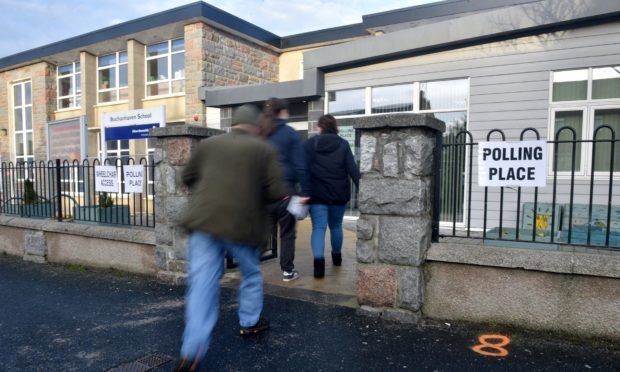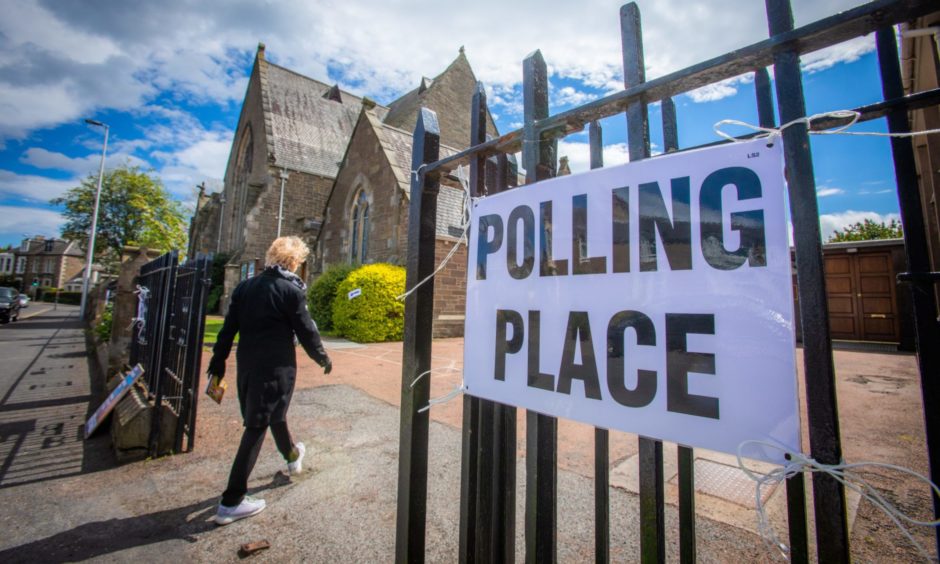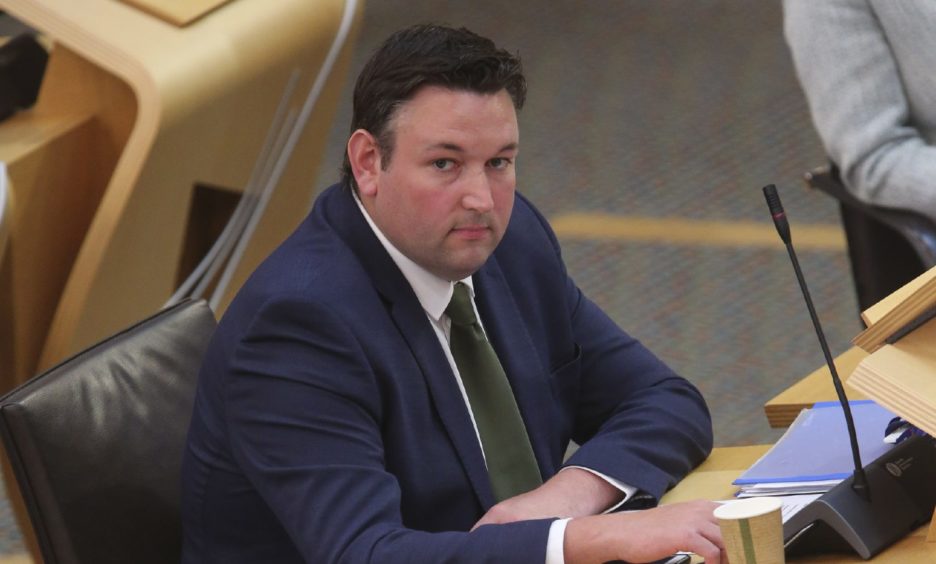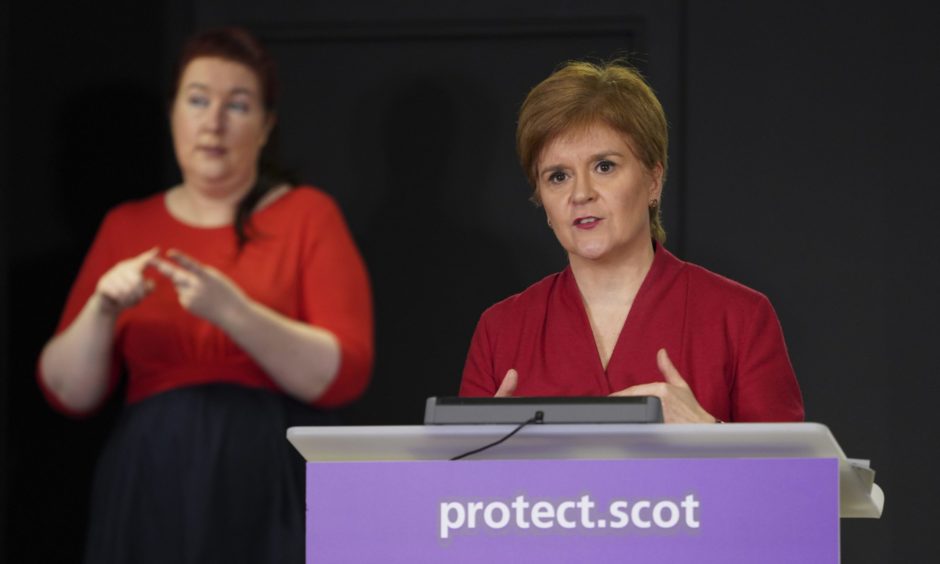Election candidates will be permitted to travel to constituencies across the country and party leaders may also be granted the right to do so in this year’s upcoming Holyrood elections.
Minister for Parliamentary Business Graeme Dey told MSPs he is “confident” the election can go ahead on May 6 as planned, following speculation it may be delayed.
The MSP said there has been “genuine concern” raised around the safety of the election but he added that “positive action” is being taken” to ensure its safe delivery”.
However, opposition MSPs pressed Mr Dey on whether the first minister would continue to front the Scottish Government’s Covid-19 briefings during the election campaign.
This year’s election will be distinct with most of the counting occurring over the course of Friday and Saturday following polling day, rather than overnight.
In his statement, Mr Dey confirmed candidates and election agents will be permitted to travel to the constituency “as necessary” as this is “work or volunteering which cannot be done from home”.
The Scottish Government is also considering allowing party leaders to travel during the campaign but the regulations “currently prevent all of us from leaving home and travelling between local authorities for work that can be done from home”.
Proxy vote
Leafleting will be allowed across Scotland from March 15, when mixing rules are eased to allow four people from two different households to meet outdoors.
From April 5, face-to-face doorstep canvassing will be permitted, subject to the stay-at-home order being lifted that day as planned, along with the prevalence of the virus dropping below 50 cases per 100,000 and daily positivity rate falling below 5%.
Canvassing will also be suspended in local authorities where prevalence rises above 100 per 100,000.
Other typical campaigning methods, such as physical hustings, driving voters to the polls and street stalls will not be allowed in this year’s election.
Those who cannot attend a polling station on the day due to testing positive for the virus or being required to self-isolate on polling day can acquire a proxy vote available until 5pm on May 6.
A ‘fair election’
Scottish Conservative chief whip Miles Briggs said this year’s election would be an “event unlike any other” but must “not compromise public health achievements”.
He asked the SNP minister to confirm whether the Scottish Government’s Covid-19 briefings will be led by public officials during the election campaign, rather than the first minister, in order to ensure a “fair election”.
In the pre-election period, known as purdah, when Holyrood is dissolved and campaigning begins, restrictions are placed on what civil servants can do and the use of public resources.
Recess at Holyrood is set to begin on March 25, six weeks ahead of the May 6 elections.
Mr Dey said purdah rules “would be followed as they always are” and said “further detail on that would be forthcoming”.
However, he added the “most important thing about these briefings is the assurance the first minister provides the public because we are still in the midst of a pandemic”.
‘Obsession with the briefings’
Liberal Democrat leader Willie Rennie said he was “content” with plans for the election but pressed the SNP minister further on the Covid-19 briefings.
He asked how Ms Sturgeon would avoid answering questions on the campaign if she continues to lead them.
Mr Dey said he was a “little surprised by the obsession with the briefings”, adding that to “imply the first minister would take advantage of that was beneath him”.
On canvassing flats and tenements, the SNP minister said he was “confident” parties would “exercise common sense” in their approach to this and on ensuring voters are wearing masks in polling stations, the police will have a “role to play”.
Mr Dey told MSPs “many countries” had already held elections successfully during the pandemic, with eight local government by-elections taking place across Scotland in October and November.
He added that it is “fundamental for a democracy to hold scheduled elections, provided it is safe to do so”.
The Scottish Government has also written to those in the shielding category, asking them to encourage their households to obtain a postal vote.
The number of electors to each polling station has been limited to 800, to allow social distancing to be carried out.
Increase in postal voting
Electoral registration officers experienced a “significant increase” in postal vote applications in February, with the public having until April 6 to apply.
The full figures are not yet available but indications are that at least 60,000 people were granted a postal vote over the course of February.
At least 10 local authorities have a minimum of 20% of their electorate issued with a postal vote, Mr Dey added.
Last year the Scottish Parliament passed legislation allowing the poll to be postponed if necessary due to Covid-19, but Mr Dey said this will likely not be needed.
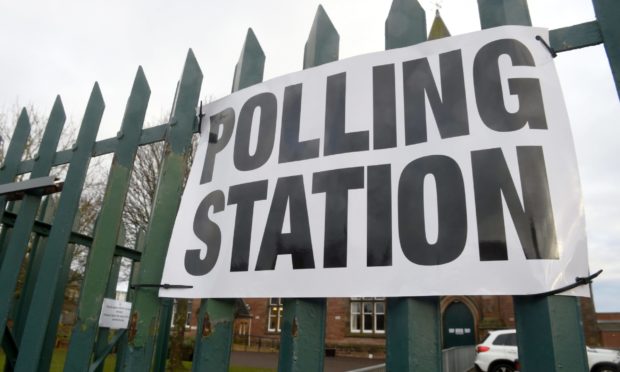
A poll published on Monday revealed the SNP could win a narrow majority of seats, after the Scottish Parliament elections.
Survation’s opinion poll for the Daily Record found Nicola Sturgeon’s party would win 67 seats at the election on May 6.
The poll put the other parties on a total of 62 seats, giving the SNP a majority of five.
On Sunday Survation released data from its poll on views around Scottish independence.
It found support for independence had fallen to 50% for the first time since June last year.
